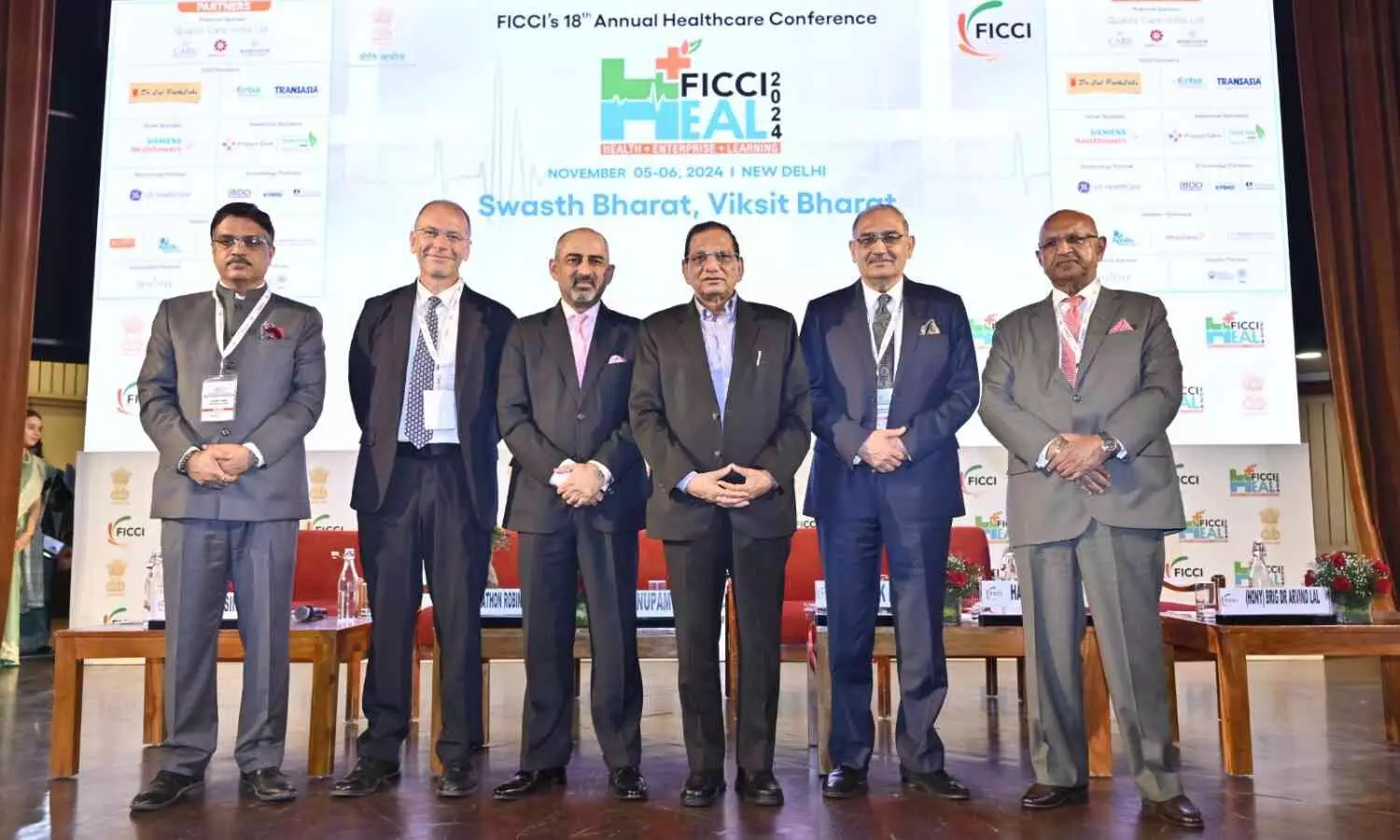FICCI HEAL 2024: NITI Aayog Highlights Commitment to Enhanced Primary Healthcare

New Delhi: Prof V K Paul, Member of NITI Aayog, affirmed the government's dedication to revitalizing the primary healthcare sector to elevate it to the next level. “We are not just running a scheme but are building the entire primary healthcare system which will be future ready and will serve our nation's journey to Viksit Bharat by 2047,” he stated.
Speaking at ‘FICCI HEAL 2024,’ Prof Paul outlined that the vision of ‘Viksit Bharat’ aligns with the goal of becoming a $32 trillion economy and increasing per capita income from $2,500 to $18,000.
He stressed, “For the journey towards becoming ‘Viksit Bharat’, health sector is going to be the base of it. The health sector being an enabler should try to do much better than other sectors. Swasth Bharat, Viksit Bharat along with Niramaya Bharat is the sentiment that I hope we all share.”
Addressing advancements in healthcare technology, Dr Paul noted that the government is prioritizing validation of new technologies. “Artificial Intelligence (AI) for health leadership belongs to India. We would like India to not only become the biggest consumer of AI for health but also the biggest creator of AI for health,” he remarked, urging the industry to support this vision.
Dr Paul emphasized the importance of using validated AI in the sector. “Please ensure that AI technologies that we put forth are validated,” he reiterated.
He further highlighted ongoing efforts to strengthen India's healthcare system, aiming to increase life expectancy from 71 years to over 85 years by 2047, alongside improving physician and bed ratios. Discussing initiatives for senior citizens under Ayushman Bharat, Dr Paul said, “Ayushman Bharat expands for senior citizens above 70 years, with Ayushman Bharat Vay Vandana Card. The government is ready with extra capacity to handle the elderly through dignity.”
Ms L S Changsan, Additional Secretary, Ministry of Health and Family Welfare, emphasized the private sector's vital role in fostering innovation, research, and bringing new models to healthcare. “This will enable us to provide healthcare to even the poorest and most remote regions in our country,” she noted.
Prof Jonathon Robin Gray from Cardiff & Vale University Health Board highlighted the importance of youth leadership, proposing a global initiative with conferences and fellowships.
Dr Harsh Mahajan of FICCI Health Services Committee pointed out how AI and predictive analytics have expanded quality healthcare access, supporting ‘Digital India’ and ‘Swasth Bharat.’
Dr Anupam Sibal stressed, “Through collaboration and partnership, we can spark the innovations and solutions that will shape the future of our nation. The road to Viksit Bharat, a developed India, is paved with collective efforts.”
Dr Sanjeev Singh reinforced the spirit of collaboration and innovation, advocating for transformative progress in Indian healthcare.
During the event, several knowledge papers were launched, including those focusing on diagnostics, cancer care, medical education, and interdisciplinary healthcare education:
- FICCI-BDO Paper on ‘Expanding the Reach of Diagnostics: The Digital Advantage’
- FICCI-EY compendium of recommendations on ‘Road Map for Making Cancer Care Affordable and Accessible in India’
- FICCI-KPMG paper on ‘The Future of PG Medical Education in India: The 2047 Roadmap’
- FICCI-Symbiosis White Paper on ‘Synergizing Healthcare Proficiencies through Interdisciplinary Education’
- FICCI Report on ‘Advancing Primary Healthcare in India through AAMs’


